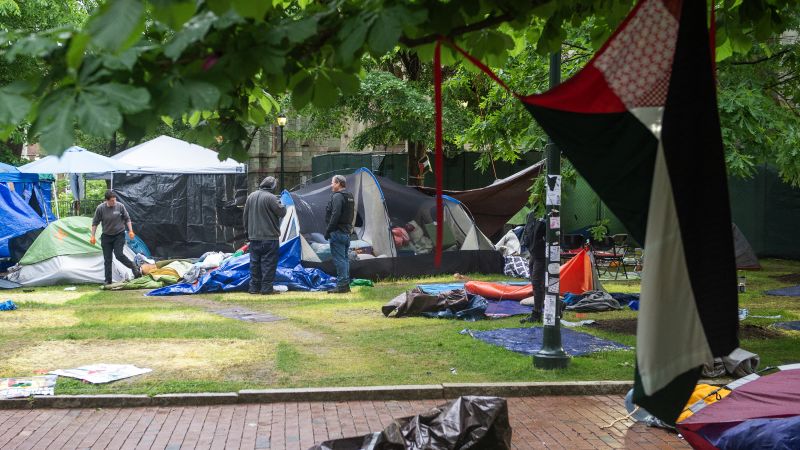Universities across the United States have implemented various strategies to prevent disruptions by pro-Palestinian protesters at graduation ceremonies. Some universities have reached agreements with demonstrators, while others have cited safety concerns and canceled or relocated their ceremonies. At the University of Pennsylvania, 19 individuals, including seven students, were arrested after pro-Palestinian demonstrators attempted to occupy a university building. The group called on the school’s administration to divest from corporations profiting from Israel’s actions in Gaza and Palestine.
The University of California, Los Angeles faced internal division after the Academic Senate rejected resolutions of no confidence and censure against Chancellor Gene Block. The resolutions were brought in response to an attack on a pro-Palestinian encampment on campus. The resolutions failed to pass with only 43% in favor of the no-confidence resolution. Similarly, Sonoma State University President Mike Lee faced backlash and was placed on administrative leave after sending a message outlining agreements with campus protesters without proper approvals. The message included terminating study abroad programs in Israel until further notice.
At Morehouse College, President David A. Thomas stated that he would shut down commencement ceremonies rather than allow police to remove student protesters during President Joe Biden’s graduation speech. Thomas emphasized the importance of allowing the ceremony to proceed in a manner that permits attendees to enjoy it. Biden’s presence at Morehouse College comes at a time when he is facing criticism over his administration’s support of Israel’s military actions in Gaza. Biden has faced protests during his speeches for his stance on Israel.
The tensions between universities and pro-Palestinian demonstrators highlight the complex issue of balancing free speech and safety concerns on campuses. Schools are faced with challenging decisions on how to handle protests and disruptions during important events such as graduation ceremonies. The recent incidents at various universities have led to internal division and public scrutiny, highlighting the need for open dialogue and communication among all parties involved. The actions taken by university administrators and protesters reflect the broader conversations around the Israeli-Palestinian conflict and the role of academic institutions in addressing these issues.
The arrests at the University of Pennsylvania and the internal divisions at UCLA and Sonoma State University underscore the challenges universities face in navigating contentious issues such as the Israeli-Palestinian conflict. The decisions made by university leaders, protesters, and students have broad implications for campus communities and highlight the need for ongoing dialogue and understanding. Moving forward, universities must work to create spaces where divergent viewpoints can be expressed while ensuring the safety and well-being of all members of the campus community. Open communication and mutual respect are crucial in addressing these complex and sensitive issues.
As President Biden prepares to deliver a commencement address at West Point, the protests at universities across the country serve as a reminder of the ongoing tensions surrounding American foreign policy, particularly in relation to the Israeli-Palestinian conflict. The actions taken by university leaders and protesters reflect broader societal debates and highlight the importance of engaging in constructive dialogue and finding common ground. The protests at graduation ceremonies underscore the diverse perspectives within academia and society at large, underscoring the need for continued engagement and awareness of the complexities of international conflicts and their impact on educational institutions.


